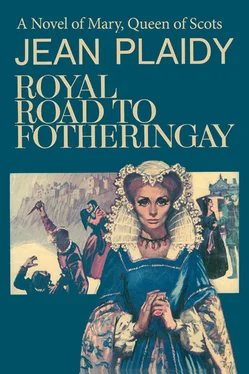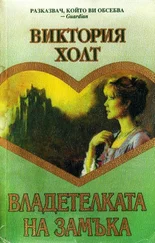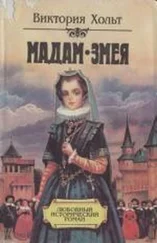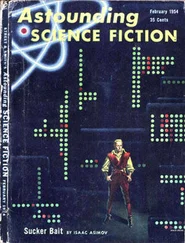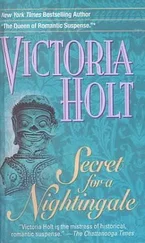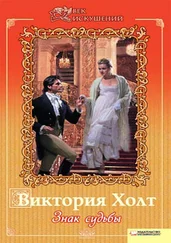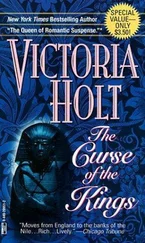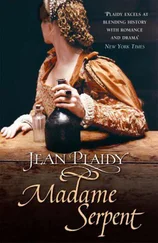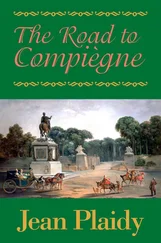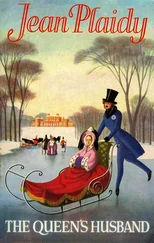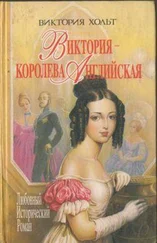It was true that Darnley did become a little peevish during his convalescence. Mary noticed that some of his servants bore bruises; she heard rumors that the spoiled boy beat his servants unmercifully. But she paid little attention to such gossip; she was far too happy to let that happiness be spoiled.
And when he was finally recovered, the Queen was so elated that, with some of her women including her three Marys, she dressed up in the humble garments of citizens’ wives and roamed the streets, stopping all the men they met and asking them to give coins toward a ball they intended to give that night.
Laughing through the streets they went and, when it was known that the party of supposedly loose women was headed by the Queen, the gossips increased their scandalous talk, John Knox ranted more than ever, and the Queen of England collected more tidbits to gloat over in private and condemn in public.
NOW THAT Darnley had recovered, Mary was determined to wait no longer for her marriage.
It was May now—three months since Darnley had come to Scotland. Mary passionately desired to regularize their union now, for she felt it very wrong that Scotland’s strict moral laws, laid down by the Kirk and to which she had given her authority, should be broken by Scotland’s Queen.
She called her brother to her and told him that she had determined to marry Lord Darnley. She had prepared a document which she asked him to sign.
“A document?” cried Moray.
“It states that you will give your consent to my marriage with Lord Darnley and do all in your power to bring it about.”
“Madam, this is impossible. It will split Scotland in two.”
“Why so?”
“There are many nobles in Scotland who will not stomach this marriage.”
“You mean yourself.”
“I am one, Madam.”
“Because you fear that we shall bring the Catholic Faith back to Scotland and the Reformed Party and yourself will no longer be in power?”
“You are young, Madam.”
“I am of age now, brother. When you were my age you were planning to rule Scotland. That is what I am planning to do now.”
“You cannot do it through marriage with Darnley.”
“I will be Queen and choose the man I marry.”
“You cannot ignore the nation and your ministers when you make that choice.”
“As Queen, the nation will follow me in my choice.”
“Never!” cried Moray in a fury.
“You forget yourself, brother.”
“It is you who forget yourself, sister. You behave like a slut with this pretty boy of yours. He shares your bed. The whole Court knows it. I beg of you, if you prize your crown, give up this evil life while there is yet time.”
“You quote Master Knox. There is another who will find his claws clipped.”
“You do not know what you say.”
“I know very well that I say what I mean. Sign this paper and I shall think of you as my good subject.”
Moray’s answer was to fling out of the room.
David came to her later to tell her that Moray had an army gathered about him. Argyle, Châtelherault and Kirkcaldy of Grange were with him. These were the most important noblemen in Scotland; and there was not a general to match Kirkcaldy. Moray had been astute; this was not the sudden move he had intended it should appear to be; he had looked ahead and this was his answer to the suggested Darnley marriage.
She paced up and down the apartment. Civil war threatened, but she was not afraid. She was not a frivolous girl now; she was a woman of deep emotions which brought her great courage.
“The English are with him,” said David. “Elizabeth has promised him arms and men.”
“I care not if the whole world comes against me!” said Mary. “I will be Queen of Scotland at last.”
“The Highlanders might well stand by Your Majesty,” said David. “Bring George Gordon out of prison. Create him Earl of Huntley. Then you will have a new Cock o’ the North to stand at your side. And there is one other whom you could trust. Recall Bothwell. He is only waiting for the summons and he will relish the opportunity to take vengeance on your brother. He will willingly serve you—if only for the opportunity of being back in Scotland.”
“That man! Do you not remember what he has said of me?”
“Forget old grudges, Madam. The need is desperate. He is a foul-mouthed ruffian but a good fighter—the most courageous in Scotland.”
So Mary sent for Bothwell and created George Gordon Earl of Huntley. The new Earl came down from the Highlands with thousands of followers—all brave men and bold, longing for a chance to settle scores with Moray and rally to the standard of the Queen.
They camped about Edinburgh, and the sound of their pipes could be heard in the palace. Along the streets the kilts and steel bonnets could be seen. From all over Scotland warriors were coming to fight for the Queen against Moray.
John Knox watched the growth in numbers of the encroaching Highlanders with apprehension. In vain did he threaten them with eternal damnation; they played jaunty airs on the pipes in answer to him. Most of them were Protestants, but they believed in a wee bit of fun and laughter, and John Knox’s talk of his God’s delight in vengeance was losing its appeal.
Mary was in some doubt as to the loyalty of these men. There was the lecherous Morton who, she knew, had weighed her chances of success against those of her brother, and it was, therefore, a good augury that he had chosen to support her. There was Lord Ruthven, who was supporting her because his children by his first wife were Darnley’s cousins.
It might be that these lords had their own private reasons for being with her in Edinburgh instead of with Moray’s armies; but for the present it was enough that they were with her and she could rely on the new Earl of Huntley and—when he came—on Bothwell.
There was one thing she intended to do before all else and that was legalize her union with her lover. Scandal was rife concerning her; it was more malignant than it had ever been, for Moray, who had previously endeavoured to quash it, now sought to foster it. He had set going a rumor that the Queen was a lewd woman and that David Rizzio and Darnley were both her lovers. He revived the Chastelard scandal. Knox was his ardent supporter in all this.
ON HER WEDDING DAY Mary walked from her apartments to the chapel at Holyrood dressed in the mourning gown of black with a large mourning hood, the costume of a sorrowing widow. She made a somber bride. It was necessary however for her to observe the strict royal etiquette which demanded that until she was another man’s wife she must, on all state occasions, appear as the widow of her first husband.
The Earls of Lennox and Atholl led her to the chapel and then went to fetch Darnley.
What a contrast he made in his glittering costume! Marys heart leaped with pride as she contemplated him. This was to be the happiest marriage that had ever been.
The Dean of Restalrig performed the ceremony with his priests to help him. Mary’s hand lay in that of Henry Stuart, Lord Darnley, and they were indeed husband and wife.
The bridegroom left the chapel in advance, in order that he might retire to her chamber, where she would join him when her women led her there.
“Come!” he cried when he saw her. “I like not this black deuil. You must be a dazzling bride. Cast aside these sorrowful garments and dispose yourself to a pleasanter life.”
Mary feigned reluctance to do this, remembering what would be expected of her, but it was difficult to hide her elation and her desire to be done with reminders of her widowhood.
At last she was persuaded to wear the brilliant wedding garments which had been prepared for her, and her women lost no time in dressing her.
Читать дальше
